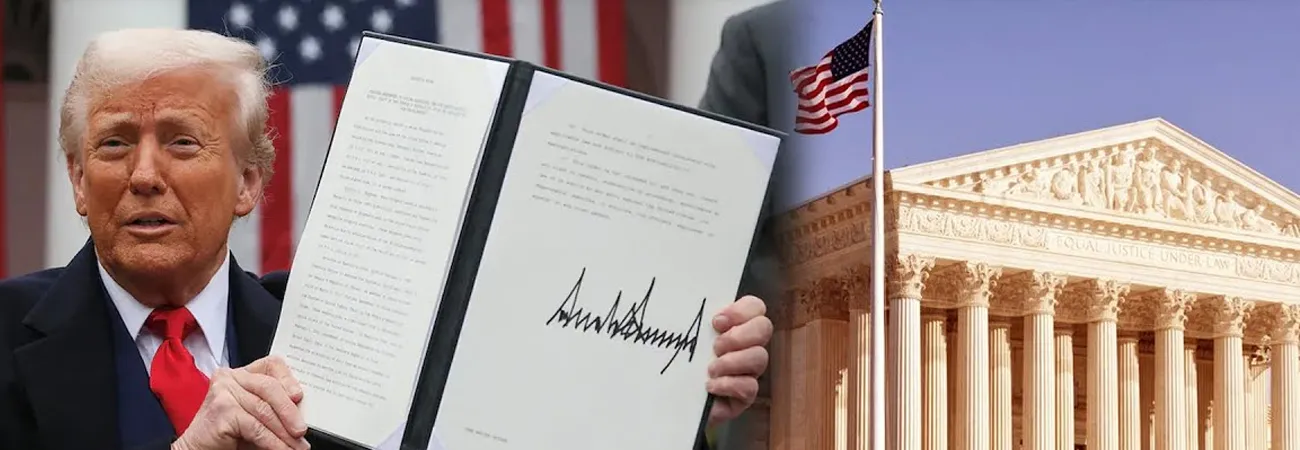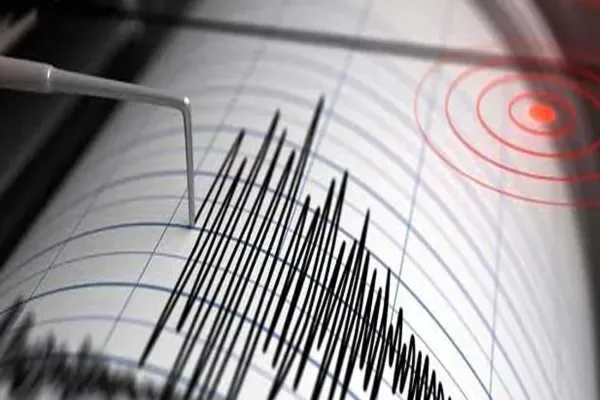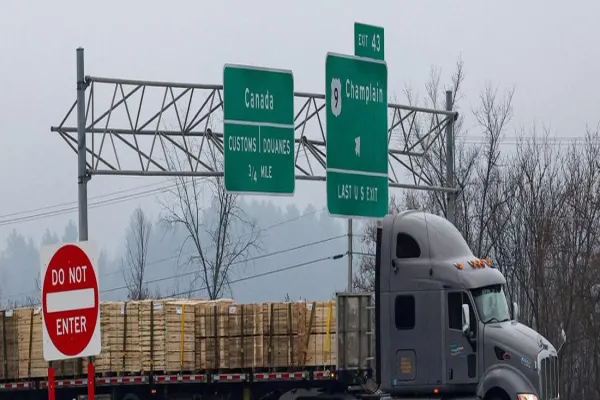i NEWS INTERNATIONAL
Donald Trump's administration asked the US Supreme Court to hear a bid to preserve his sweeping tariffs pursued under a 1977 law meant for emergencies, after a lower court invalidated most of the levies central to the Republican president's economic and trade agenda.The Justice Department appealed an August 29 ruling by a federal appeals court that the president overstepped his authority in invoking the law known as the International Emergency Economic Powers Act, undercutting a major Trump priority in his second term.
The tariffs currently remain in effect as the appeals court paused its order to give the administration time to seek Supreme Court review. The Justice Department asked the Supreme Court to decide by September 10 whether it would hear the case. The Justice Department also proposed an accelerated timetable for resolving the litigation, with oral arguments in the first week of November, just a month after the start of the court's 2025-2026 term.
Lawyers for small businesses challenging the tariffs are not opposing the government's request for a Supreme Court hearing. One of the attorneys, Jeffrey Schwab of Liberty Justice Center, said in a statement they were confident they would prevail. "We hope for a prompt resolution of this case for our clients,” Schwab said. The levies are part of a trade war instigated by Trump since he returned to the presidency in January that has alienated trading partners, increased volatility in financial markets and fueled global economic uncertainty.
Trump has made tariffs a pillar of US foreign policy, using them to exert political pressure and renegotiate trade deals and extract concessions from countries that export goods to the United States. The litigation concerns Trump's use of IEEPA to impose what Trump calls "reciprocal" tariffs to address trade deficits in April, as well as separate tariffs announced in February as economic leverage on China, Canada and Mexico to curb the trafficking of fentanyl and illicit drugs into the US.
IEEPA gives the president power to deal with "an unusual and extraordinary threat" amid a national emergency and had historically been used for imposing sanctions on enemies or freezing their assets. Prior to Trump, the law had never been used to impose tariffs. Trump's Department of Justice has argued that the law allows tariffs under emergency provisions that authorise a president to "regulate" imports or block them completely.
The appeals court ruling stems from two challenges, one brought by five small businesses that import goods, including a New York wine and spirits importer and a Pennsylvania-based sport fishing retailer. The other was filed by 12 US states — Arizona, Colorado, Connecticut, Delaware, Illinois, Maine, Minnesota, Nevada, New Mexico, New York, Oregon and Vermont — most of them governed by Democrats. The Constitution grants Congress, not the president, the authority to impose taxes and tariffs, and any delegation of that authority must be both explicit and limited, according to the lawsuits.
The US Court of Appeals for the Federal Circuit in Washington, DC, agreed, ruling that the president's power to regulate imports under the law does not include the power to impose tariffs. "It seems unlikely that Congress intended, in enacting IEEPA, to depart from its past practice and grant the President unlimited authority to impose tariffs," the appeals court said in its 7-4 decision.
The appeals court also said that the administration's expansive view of IEEPA violates the Supreme Court's "major questions" doctrine, which requires executive branch actions of vast economic and political significance to be clearly authorised by Congress. The New York-based US Court of International Trade, which has jurisdiction over customs and trade disputes, previously ruled against Trump's tariff policies on May 28.
Another court in Washington ruled that IEEPA does not authorise Trump's tariffs, and the government has appealed that decision as well. At least eight lawsuits have challenged Trump's tariff policies, including one filed by the state of California. The administration's appeal comes as a legal fight over the independence of the Federal Reserve also seems bound for the Supreme Court, setting up a potential legal showdown over Trump's entire economic policy in the months ahead.
Credit: Independent News Pakistan (INP)









